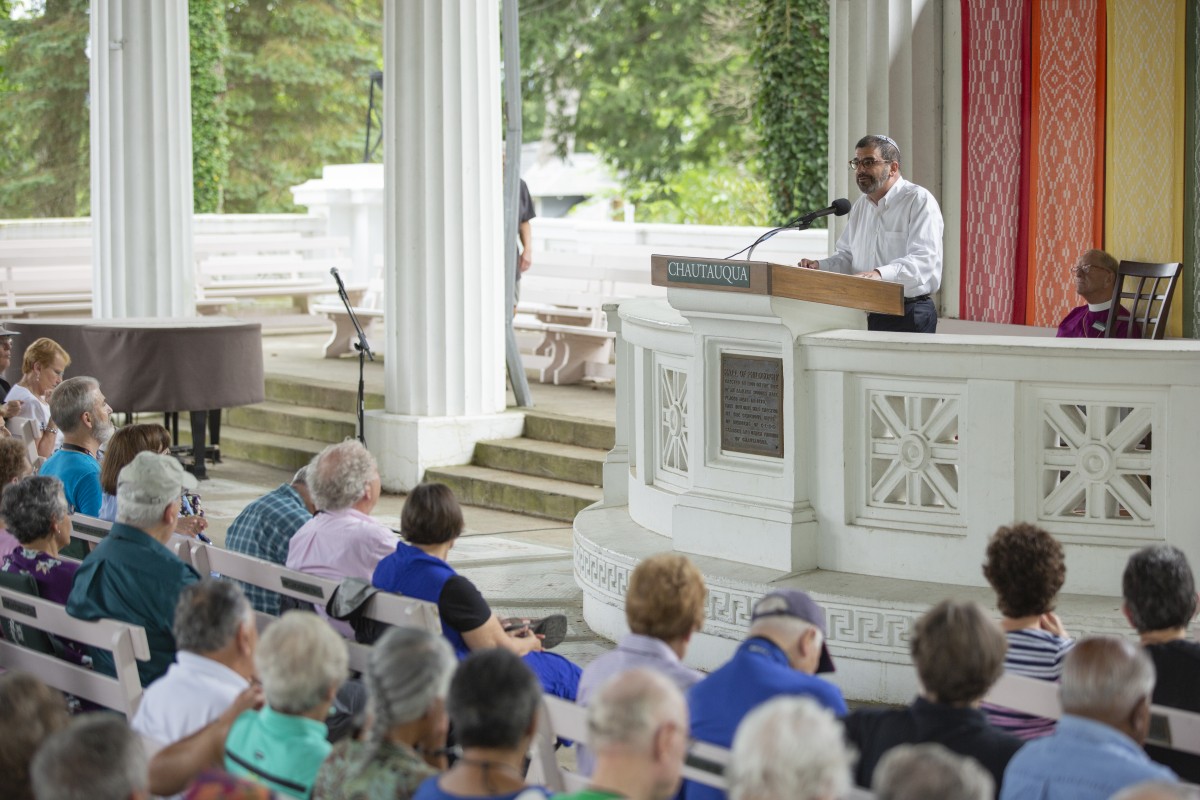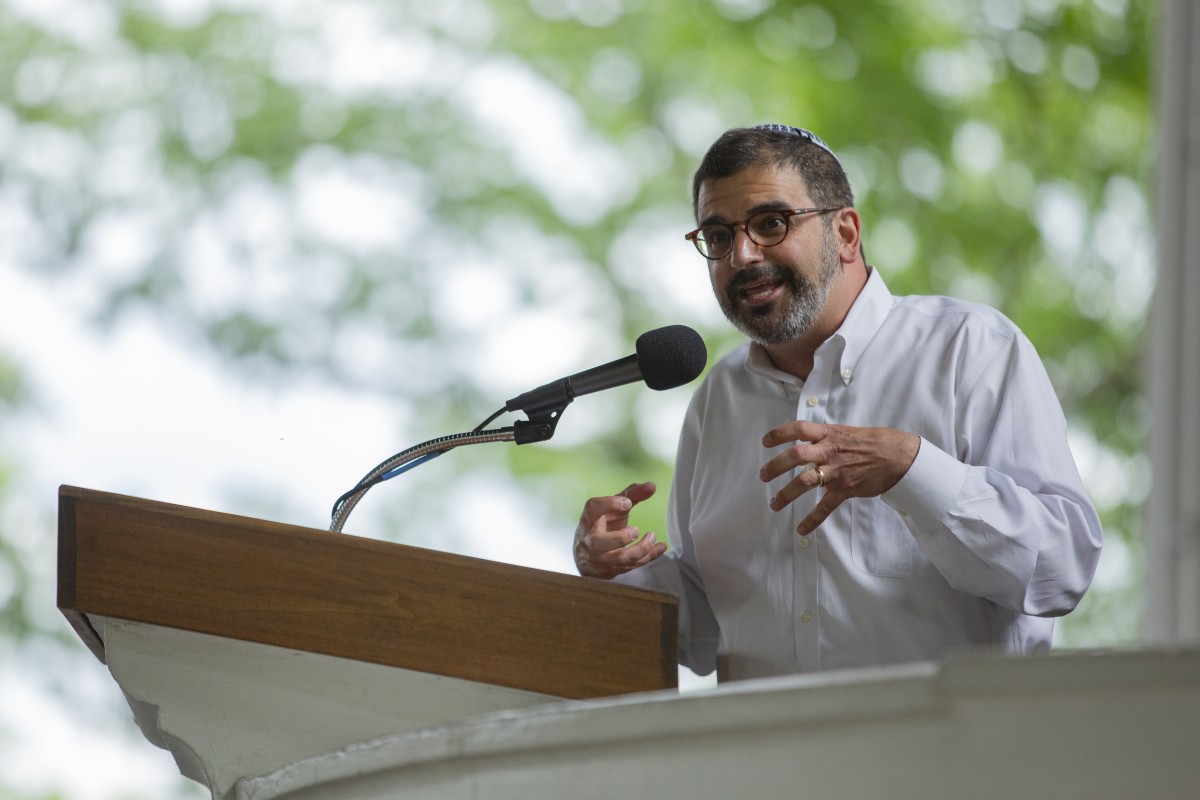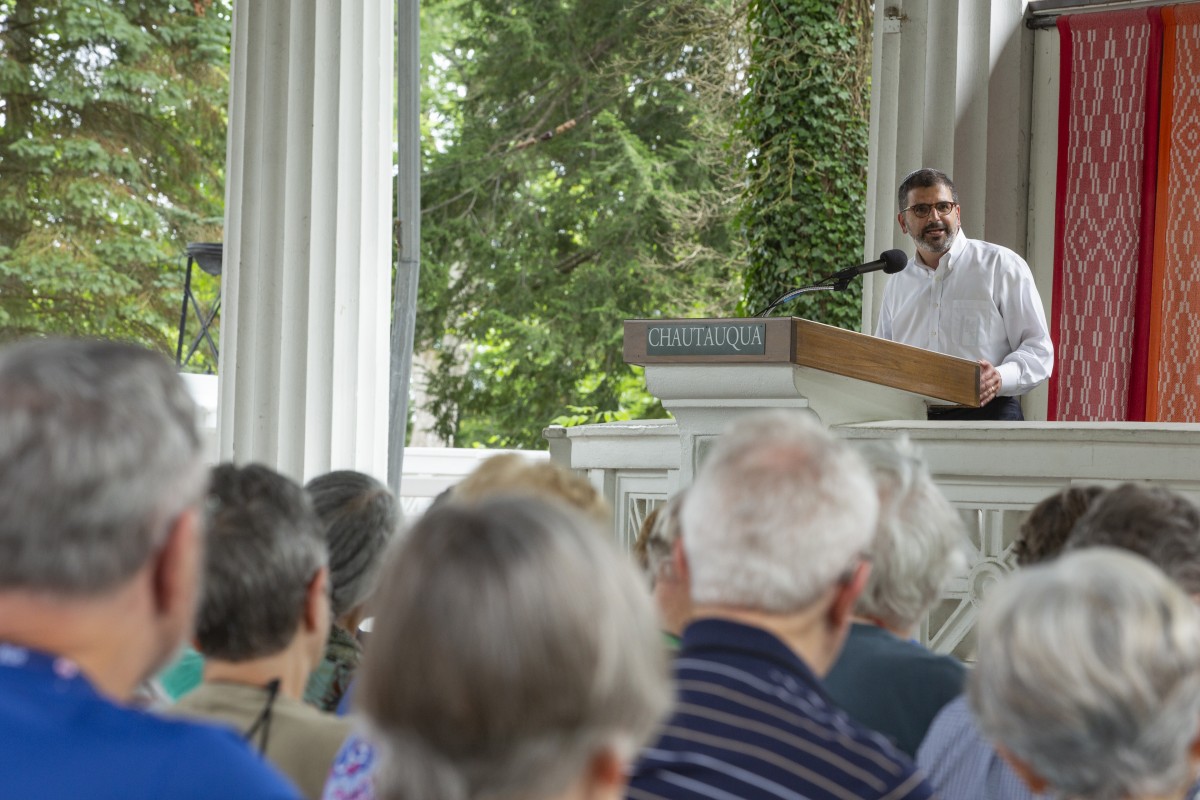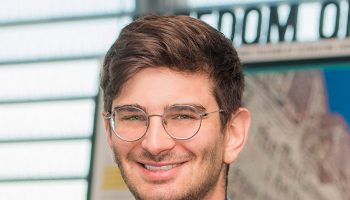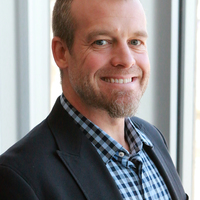In the sixth edition of the Interfaith Friday Series, August 3, the Rt. Rev. V. Gene Robinson, vice president of religion, moderated a number of questions with interfaith advocate Rabbi Asher Lopatin, who represented Modern Orthodox Judaism.
Lopatin is president of Yeshivat Chovevei Torah Rabbinical School, an Orthodox rabbinical school. In August, Lopatin will launch a new Modern Orthodox synagogue in Detroit, as well as starting a university-oriented Center for Civil Discourse. Lopatin has written chapters in over 20 books, as well as numerous articles. He is a member of the Council on Foreign Relations, cochaired the Jewish-Muslim Community-Building Initiative in Chicago, and has been listed several years in Newsweek’s Top 50 Rabbis.
What follows is an abridged version of Lopatin’s conversation. Lopatin and Robinson’s remarks have been condensed for clarity.
From where you sit in your tradition, why should we be moving in an interfaith direction either here at Chautauqua or in the world?
Lopatin: By interfaith direction, my understanding is more interfaith dialogue, more contact with each other. That gets to the idea that I think a richer life is a challenged life, is a more educated life, and I get excited by hearing different views. It is interesting — interfaith does two things. First of all, it does challenge you, and you have to think about your religion more deeply, and that’s healthy. I really think that maybe we should let our kids play in the dirt a little bit more because then they will build up more resistance. So, I like the idea of being challenged. But the other side, which I found very exciting, is finding the similarities we have. Especially Jesus as a Jew, studying the New Testament (and) finding so many central tensions that the rabbis share. (There are also) so many issues that Judaism and Islam share. There are countries in Europe that don’t allow us to slaughter our meat in our traditional ways, and Jews and Muslims stand together on that. Then in sociological ways, how do Muslims in America keep their tradition going in this very secular and, some ways, Christian country? What happens when your little kid comes home, your Muslim kid, and wants to have a Christmas tree in the living room? That is something that Jews and Muslims can deal with together. Both the differences are strengthening, and the similarities are also very supportive.
When you come to the metaphorical interfaith table, what gifts do you bring as a Modern Orthodox Jew to that table?
Lopatin: I think that one of the great things about Judaism is this idea of an evolving and changing world. I think that in today’s times, some things can be very frustrating, and it is important to believe that this world can be a good world. And you see torture going on, and some of these other things you see going on, refugees and bannings from different countries, but this belief that it can get better is a critical idea of Judaism. Along with that is this idea of change without change. You can have kind of radical change without being afraid that you are wiping out your tradition, and Judaism has been very good at accommodating that. When Judaism entered a more benign attitude, let’s say toward Christianity, certainly during the Middle Ages, doing business and being part of it in its own way, the Christian community, it was not seen as we are abandoning our Judaism. It’s seen as a new understanding and a Judaism that was always there. So I actually feel that on many issues — on Israel, Palestinians, on Jews in America. One of these issues, what Judaism should have to offer, is that you can come up with a very different perspective than people have 100 years ago, or 50 years or a year ago, and that is not betraying your religion; it is really being consistent with your religion, it is really what your religion is about. Now, I guess people will say, “Oh you’re deluding yourself, that’s not what Judaism is about.” It will take a lot of arguments, but I think that ultimately, Judaism has that to offer. You see the changes that have occurred without asking people to abandon their passion for their religion.
What gifts do other religions bring to the table that you might benefit from?
Lopatin: I am always looking, first of all, for passion, and passion comes in different ways. In Islam, (we see) the incredible passion of praying five times a day. Now, Jewish prayers are a little bit longer than Muslim prayers, but that model of stick-to-itiveness that Muslims have to a great extent (is good) for Jews to know. When it’s time to pray, you pray. You don’t worry who is around. I think sometimes when we see it in other people and other religions, it gets us to be more passionate, more understanding and more comfortable in asserting who we are. But I also see where it is such a consumer-driven society that (there is) this powerful tradition of Christianity, aestheticism and other worldliness. I mean, Judaism is great because we can work this world so well, and we don’t have to give up enjoying this world. We don’t have to give up working in this world; even traditional Orthodox (people) in Israel are trying to go more into the workplace and out of their rabbinical schools, but there is something about living in other worldly ways, so maybe we can get a little bit of that balance.
Do you have any sacred texts or holy teachings that are telling you that yours is the one true religion?
Lopatin: I guess the area where this is difficult for some or stands out is “chosenness.” Definitely in (a verse meaning): “We are the people that were chosen to receive a revelation.” Islam actually has the same revelation. For Judaism, it’s only the Jewish people, in general, and we distinguish ourselves from other people in that way. There’s a prayer that says, “God did not make us like other nations, and God is in charge of our destiny.” There is a lot of other literature, Talmudic literature, which doesn’t talk about other religions but talks about “them and us.” Zalman Schachter-Shalomi reread that part and said, “God made us like all the other nations.” I’m not saying that is the simple understanding, I do think the tradition is that God chose us to be special, but the fact that the text can be read in that way and can sound that way is amazing. I’m a mystical believer that that is wholesome, contained in the text even though the simple meaning is this chosenness. Even with all the chosenness, it’s not to say in general within Orthodoxy that other nations are not special in their own ways. Judaism is special in a lot of ways, and other nations are special in their other ways. There is a stream, to be honest, within Judaism, within Orthodoxy, that thinks the soul of a non-Jew is different from the soul of a Jew. I don’t subscribe to that, and many Orthodox (adherents) don’t subscribe to that. I don’t know how to explain that. That bothers me a lot. But that’s something you have to accept as an Orthodox Jew; that’s one voice out there. A lot of people that subscribe to that are the nicest people to ever run the world, but they just believe they have a better soul than other people. But that’s one element within Orthodoxy, but that’s been a debate. The fact that Orthodoxy has debated that, their enforcement to say “everyone’s soul … everyone’s equal,” and argued against those that said that there is a difference in soul, shows that Orthodoxy is sensitive to this issue, and there’s really a tradition within Orthodoxy of “We are all chosen in our own ways.”
Do you have extremist practitioners of Modern Orthodox Judaism?
Lopatin: I’m very optimistic. There’s just a big love fest in Orthodoxy. There are those that are extremist against Zionism. Zionism is that sort of balance between parochialism and having a promised land you should live in and also making that land an ethical model for the world. I think Israel strives for that and works on that, but there are those totally against the Jewish state and Israel, and those are the ones that hate that concept of protesting. But you know what’s interesting? Even those who are more extreme are coming around a little bit. Even some that were against going to work, who said, “A man should just stay in rabbinical school,” some of those are starting to say, “OK, it’s OK to be a part of the workforce.” Some of those that were so much against Israel are now much more loyal to Israel actually, even if they don’t believe Zionism is a God-given era. Even on the toughest issues, women issues, gender issues, there’s movement, there is a great deal of movement, (but) it’s slow. Really, I think the most bitterness (comes from) people that are so similar within Orthodoxy. Different factions within Modern Orthodoxy or modern versus centrists and centrists versus ultra. But there is movement, and I’m always very hopeful about that. So we do have our extremists, and the tragedy is, a lot of time, extremists are zero-sum people. They think it’s us or them. It’s either we do good for the Jews, or it’s a loss. If they can understand that this world is not so much a zero-sum world, that it’s a positive sum — we can do good for us while doing good for others. So I think that is the problem that I see, and I hope that’s where there will be a shift.


